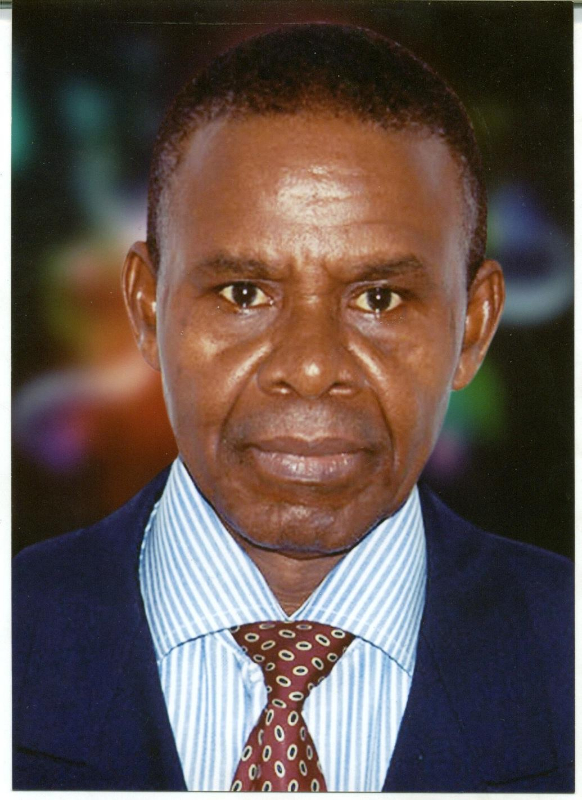

Mr. Nwafo
By CHIMA NWAFO
Reasons for the declaration of certain days as public holidays vary from country to country, just as the events and circumstances that occasion the declaration differ. In some countries, holidays are declared to honour heroes and heroines, as well as historical milestones. Though in some climes such as Nigeria, religious holidays are dominant even when the Constitution says she is a secular state.
By way of definition, a holiday is any day within the year established by law as a non-working day – it could be nationwide or in states and regions, in the case of federations – for the observance of certain events or in honour of a personality. For example, Bola Ahmed Tinubu as governor of Lagos unilaterally declared June 12 as work-free day in Lagos State during his tenure, and later some South-west states joined Lagos. Besides the observance of such popular events as New Year’s Day, Good Friday, Easter Monday, Christmas and Boxing day, Britain also observes “Early May, Spring Bank and Summer Bank Holidays.” On its part, the United States, being a federation, celebrates such historical events and personalities as Martin Luther King Jnr, Presidents’ Day, Memorial Day, Independence Day, Labour Day, Thanksgiving Day as national public holidays, whereas states observe days relevant to their history. Last year, President Muhammadu Buhari for obvious reasons declared June 12, as the nation’s “Democracy day”, to be observed as public holiday after the National Assembly passed the bill which he quickly signed into law. As a result, the observance took effect from June 12, 2019.
Given the foregoing backdrop, events that should qualify as a public holiday are not cast in iron, neither are they like the irrevocable laws of ancient Medo-Persian kingdom. All that is required is for the Federal or state authority to establish the rationale for the acceptance of a particular milestone or personality in the history of the people. Next, the relevant parliament would enact a law to back the proposition. It does not require a vote or referendum by the national or regional parliament. Two instances cited above will suffice. After years of resistance by conservative white Americans, a public holiday was eventually adopted to honour the African-American civil rights activist, Rev. Martin Luther King Jnr. In Nigeria, after nearly two decades of observing June 12 as a regional holiday in honour of Chief Moshood Kashimawo Abiola of blessed memory, from 2019, it has gone national. Also, in the United Kingdom, they chose to celebrate “Bank Holidays”.

If banks are celebrated as public holidays in UK, I wholly agree with the Bayelsan envangelist who mooted the idea of declaring a public holiday after Oloibiri, where Shell struck Nigeria’s first productive oil well in January 1956, and barely two years later, precisely on February 17, 1958, the country joined the league of oil exporters. The significance of the holiday should majorly be viewed from the perspective of being attached to the ENVIRONMENT. The reason is simple: Whereas the Nigerian government has reaped and still reaping trillions of dollars in crude oil revenue, the ecology of host communities has equally suffered unquantifiable environmental degradation without remediation, either from the Federal Government-owned Nigeria national Petroleum Corporation (NNPC) or its joint-venture partners. The indifference of oil majors in the region has reached an extent where a state governor described their activities as “environmental terrorism.” They are widely fingered for the high level of youth restiveness and communal clashes in the oil-rich Niger Delta.
Some sceptics may ask: Why Oloibiri-crude-oil Day as public holiday?
The desired public holiday – Oloibiri-crude-oil Day – should be entirely dedicated to the promotion and articulation of programmes and activities that will create nation-wide enlightenment on the protection of the environment. Through the various civil society groups, that day shall be used to educate the public and raise awareness on need for individuals, communities and corporate organizations to appreciate the importance of protecting their immediate environment. It will initiate a national campaign that will capture the smorgasbord of environmental issues in Nigeria: From the oil pollution in the Niger Delta, toxic industrial emission in commercial centre, desert encroachment in the Sahel region, deforestation, gully erosion and flood which all of which are threats in all the states of the federation.
The federal and state governments as well as activists ought to rise to the challenge of environmental degradation in the country. Haphazard observation of UN-declared environmental programmes and hand-outs from European Union and other donor agencies – which often end up in corrupt public agencies – are not enough given the enormity of the problem. Flooding in urban areas and villages that lead to the loss of lives and properties as well as destruction of farmlands, often valued in billions of naira, is a yearly ritual. And this is not limited to any region, no. It traverses the entire stratosphere – from the arid North to the southern wetlands down to the Niger Delta – without exemption. Sometimes, one wonders why Nigerians – individuals who, in most cases, contribute to the problem and the government whose ineptitude compounds it – take environmental issues lightly.
Nevertheless, every journey begins with the first step. And that initial salvo has been fired. To support the campaign, we suggest the engagement of the following measures: joint public awareness campaign programme involving all the states and local governments of the federation; information dissemination on the importance of the environment and the negative impacts of its abuses and neglect on health and public institutions, using leaflets, posters, radio, television, and other media; Making available to the public, guidelines on sustainable use of our immediate surroundings and conservation of the ecosystem; Education of residential communities in the metropolis and local communities through project demonstrations by environmental activists, civil society groups and interested non-governmental organizations to enhance their capacities for better monitoring and management of the environment and its resources, among others.

So, Oloibiri is just symbolic, in fact, Shell Petroleum Development Company which drilled the historic pioneer oil-well stands to benefit more. Today, either for good or bad, but more on the positive angle, Shell represents crude oil exploration, production and exportation in Nigeria. Unknown to many, even the NLNG, which enjoys an enviable image as a good example of corporate social responsibility, is tied to the apron-strings of Shell.
Oil wealth built both Abuja and Lagos, the current and former capitals. Oil made billionaires of ex-Army Generals and fashion designers as well as some non-entities who were connected to the powers-that-be, and still sustains the entire 774 local and municipal governments, the 36 states and Federal Government of Nigeria.
And it all began from that first successful strike at Oloibiri in 1956. So, what reasons can any right-thinking Nigerian adduce for not supporting the declaration of one day in a year as public holiday, in honour of crude oil-find at Oloibiri.

*Nwafo, Veteran Copy Editor/Environmental Analyst, can be reached on: [email protected]; 08029334754.
Share your story or I Witness Reports with us 24/7
via: SMS: +234 (0)9076248001
Whatsapp: +234(0)8072022024, Email: [email protected]
Website: www.gatmash.com
For advert placement, contact us today via email: [email protected] or call our hotlines on Tel: +234(0)8072022024, 08166622444, 09076248001





